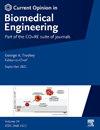培养皿中的多样性:利用类器官来反映健康和疾病的遗传血统和性别差异
IF 4.2
3区 工程技术
Q2 ENGINEERING, BIOMEDICAL
引用次数: 0
摘要
遗传祖先和生物性别之间的相互作用越来越被认为是影响健康结果、治疗效果和药物毒性的关键因素。目前的研究强调了不同祖先群体和性别在疾病易感性和治疗反应方面的重大差异,基因组研究中不同人群的代表性不足阻碍了进展。大多数全基因组关联研究(GWAS)仍然以欧洲为主,阻碍了准确的多基因风险评分(PRS)的发展。此外,药物代谢、免疫反应和疾病患病率的性别相关差异需要进行性别分层分析。这篇综述强调了先进的体外模型的潜力,特别是人类多能干细胞(hPSCs)和成人干细胞衍生的类器官,通过提供反映人类遗传多样性和促进高通量筛选的平台来弥补这些差距。通过整合不同的遗传数据和利用供体/群体特异性类器官模型,研究人员可以发现关键的基因型-表型关联,从而增强对健康差异的理解并改善药物基因组学应用。为了提高可重复性和吞吐量,标准化协议、实施自动化、使用类器官阵列以及良好控制的汇集人群可以简化工作流程,提高跨研究和地域的可重复性。这种方法促进个性化医疗,旨在优化治疗效果,减少不同人群的不良反应,促进公平的医疗保健结果。本文章由计算机程序翻译,如有差异,请以英文原文为准。

Diversity in a dish: Leveraging organoids to reflect genetic ancestry and sex differences in health and disease
The interplay between genetic ancestry and biological sex is increasingly recognized as a critical factor influencing health outcomes, treatment efficacy, and drug toxicity. Current research highlights significant disparities in disease susceptibility and therapeutic responses across different ancestral groups and sexes, with underrepresentation of diverse populations in genomic studies impeding progress. Most Genome-Wide Association Studies (GWAS) remain predominantly European, hindering the development of accurate polygenic risk scores (PRS). Additionally, sex-related differences in drug metabolism, immune response, and disease prevalence necessitate sex-stratified analyses. This review underscores the potential of advanced in vitro models, particularly human pluripotent stem cells (hPSCs) and adult stem cell-derived organoids, to bridge these gaps by providing platforms that reflect human genetic diversity and facilitate high-throughput screening. By integrating diverse genetic data and leveraging donor/population-specific organoid models’ researchers can uncover critical genotype-phenotype associations that enhance understanding of health disparities and improve pharmacogenomic applications. To increase reproducibility and throughput, standardized protocols, implementing automation, and employing organoid arrays along with well-controlled pooled populations can streamline workflows and enhance repeatability across studies and geographies. This approach fosters personalized medicine aimed at optimizing treatment efficacy and reducing adverse reactions across diverse populations, promoting equitable healthcare outcomes.
求助全文
通过发布文献求助,成功后即可免费获取论文全文。
去求助
来源期刊

Current Opinion in Biomedical Engineering
Medicine-Medicine (miscellaneous)
CiteScore
8.60
自引率
2.60%
发文量
59
 求助内容:
求助内容: 应助结果提醒方式:
应助结果提醒方式:


